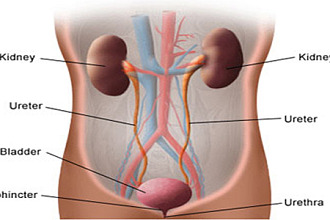Benjamin Franklin said it best: "An ounce of prevention is worth a pound of cure."
In the current healthcare debate, one side preaches universal health care while the other decries this kind of government intervention. But someone should tell both sides that the best healthcare reform is simply better self-care.
Of course, factors outside of our control influence our health. A good healthcare system, therefore, provides treatment for the unforeseen. It's also true that our nation's system certainly needs fixing, but the most common causes of death in America, heart disease and cancer, are largely lifestyle-related—meaning most cases could be prevented through healthy living. Americans' healthcare spending exceeds that of any other nation (more than three-fourths of that spending to treat those same preventable diseases), yet we have a lower life expectancy than most other developed nations. "While our federal and state governments spend hundreds of billions of dollars a year on treating diseases, they spend less than $10 per person per year to prevent diseases," says Dr. Richard Carmona, former U.S. Surgeon General. "We are a treatment-focused society, when the real benefits to health and happiness come from preventing diseases before they ever occur."
By far the most important step Americans could—and should—take to reduce the individual and collective cost of health care is to practice prevention. How? Get back to the Bible's basics ...
Eat whole foods. Natural foods, especially vegetables, have the most disease-fighting power. Build your diet around vegetables, beans, fruits, whole grains and nuts, and use dairy or other processed foods sparingly. If you eat fruits and vegetables that are in season in your area, chances are you'll get more variety in your diet as well.
A simple rule of thumb is to eat things as close to their most natural state as possible: raw or steamed broccoli as opposed to broccoli cheddar soup; a spinach salad rather than cheesy spinach artichoke dip; corn on the cob, rather than ground beef, milk, or cheese from a corn-fed cow; sprouted wheat bread as opposed to a snack cake made of white flour.
Exercise. For those of us with more sedentary jobs, it's essential to get at least 30 minutes per day, five days per week, of vigorous exercise—more if you want to lose weight.
Make it a part of your daily routine; that way it's easier not to skip.
Already have a busy lifestyle? Find ways to incorporate activity into things you already do: Instead of a lunch date with a friend, make it a walking date and combine your social activity with your exercise. Play a game of touch football with your whole family in the backyard and combine your family time with exercise. Walk your neighborhood while you pray and meditate on the Scriptures, and combine your spiritual time with exercise.
Written by: Emily Simmons – The Smooth Road to Destruction
December 7, 2009
Originally from here
Posted on ShalomAdventure.com by: Brenda Miller
Picture by: V. Vereshagin, public domain


























